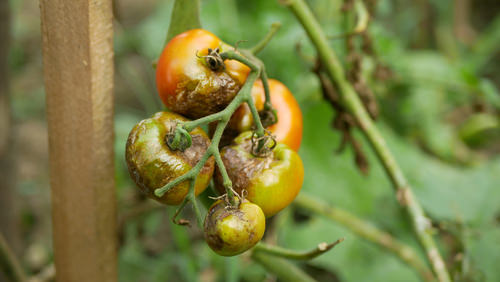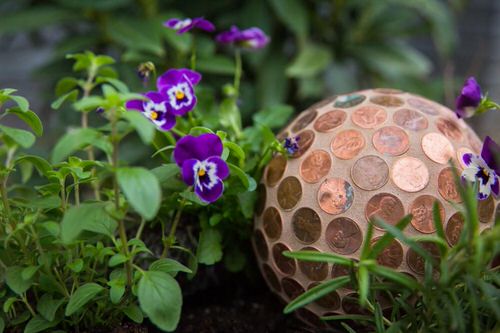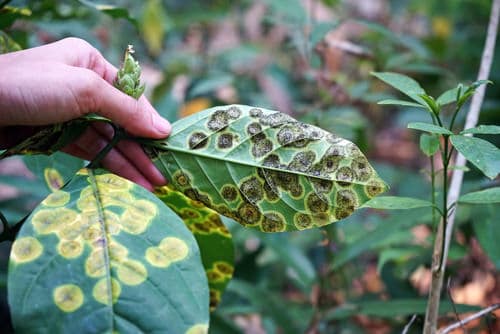Do you know that Copper Pennies can do wonders in your yard? Surprised? Don’t be! Here are some brilliant Penny Uses in the Garden for you!

Copper pennies contain pure copper, which has great antimicrobial, antifungal, antibacterial, conductive, and biostatic properties. It can also be helpful in a variety of other ways in the yard! Let’s have a look at some amazing Penny Uses in the Garden!
Here are some surprising nail uses in the garden
Penny Uses in the Garden
1. Keeps Potatoes and Tomatoes Safe from Blight

In a field experiment, it was found that copper oxychloride and copper hydroxide are the most effective for the management of blight.
A report by the University of Agricultural Sciences and Veterinary Medicine, also states that copper treatment is a viable alternative in the control of potato blight. Under organic farming conditions, the application of any copper-based product will keep them at bay.
Keeping all these studies and research in mind, it would be safe to say that burying a few copper pennies around potatoes and tomatoes at the time of planting is the best way to keep them safe from blight, which will ensure you get a good harvest!
2. Copper Pennies Can Help in Plant Growth

A report by the University of Minnesota Extension states that copper is required for many enzymatic activities in plants and for chlorophyll and seed production.
Copper pennies can actually play a vital role in plant development, especially if the soil is highly acidic or alkaline, as they are the major cause of the depletion of copper levels. The best way is to add 4-6 copper pennies in a pot or at the base of the plant in the garden.
3. Can Deter Slugs and Snails

One of the best uses of pennies in the garden is to repel slugs and snails. The reason behind it is these pests are not safe from static shock and copper causes a similar reaction to them.
The best way to use them is to make a copper penny ball in the garden by sticking a few of them on a ball. Keep it near to the plants or in an area where slugs and snails are frequent. You can also use copper wires around the plants.
You can keep the slugs away by making eye-catching garden art, too. Details are here.
4. Acts as a Fungicide

According to a report, copper has been used in agriculture to control oomycetes, fungi, and bacteria for over a century. It is one of the best and most organic ways to deter fungal issues in garden plants.
So, if you want an environmentally friendly approach, try burying a few copper pennies in the garden near your plants. It will work especially well for lettuce, cabbage, tomatoes, potatoes, and other vegetables, reducing the chances of fungal infections.



I read about this, but no one actually stated how many to put in the plant. I was happy to find your information showed actual instructions versus just hey it’s through a penny in your plant. Thank you for the actual details.